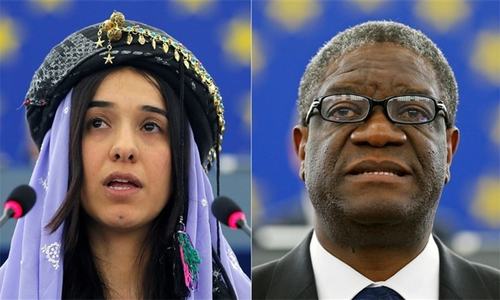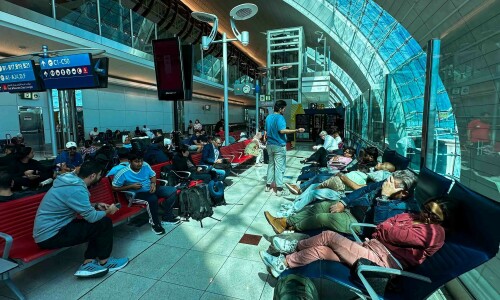The Supreme Court on Thursday acquitted a man sentenced to jail on rape charges by the Lahore High Court (LHC) after finding the testimony of the complainant to be false.
The top court was hearing a case pertaining to the rape of a girl in Sheikhupura, that was filed in 2010 by the victim's father. Two men had been accused and one was convicted. The second suspect is still absconding.
Chief Justice of Pakistan Asif Saeed Khosa lashed out at the petitioner, Bashir Ahmed, for giving a false statement in court, saying that "justice cannot be done until false witnesses are dealt with".
"The accused could have been sentenced to death because of the false statement given by the primary witness and petitioner Bashir Ahmed," Justice Khosa said.
"How about we hand you a life sentence for giving a false statement, Mr Bashir?" the chief justice remarked and added: "If we take action against you, people will say that the court sent a man to jail whose daughter was raped."
Justice Khosa also criticised the high court for "ignoring evidence".
"High court is a senior court. In this case, high court ignored evidence," he regretted. "A judge's job is to do justice, those who cannot do that should go home."
The chief justice said that conducting a probe is not the "court's job" and an investigation officer knows "which witness is honest and which is a liar". He pointed out that Ahmed had also changed his statement before the court twice.
Overturning the high court's verdict, Justice Khosa made the victim's father promise that he will speak the truth.
Sahiwal rape case
In another case pertaining to the alleged rape of a woman in Sahiwal, the Supreme Court acquitted a man eight years after he was sentenced to jail, ruling that accusations levelled against Nadeem Masood were false.
During the hearing, Justice Khosa said that the appellant had been in a consensual relationship with Masood for seven months, during which she had not filed any complaint against the accused. He further said that she was two-weeks pregnant at the time she lodged a case and noted that the medical reports showed no evidence of rape.
The woman, however, argued that the accused was a powerful man and had violated her multiple times over seven months that had led to her conceiving a child.
The woman's father urged the judge to "do justice".
"These days justice is only [a decision] that is favourable [to a party]. If a verdict is unfavourable, it is not considered justice," Justice Khosa responded, saying that the defence had been unable to prove its claims.
Both cases were first heard by a session court, that had awarded jail sentences to the accused. The accused in both cases had filed an appeal against the sessions court verdicts in the LHC but the high court had upheld the decisions.
















































